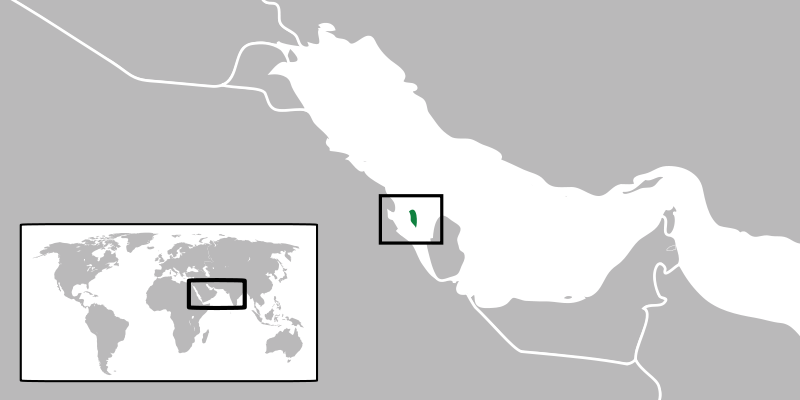Bahrain Significant To US Interests Despite Hold In Arms Sale
Bahrain has not had a good year as a result of the instability that stemmed from an uprising by members of the country’s Shia majority population that began in February. While the Bahraini Government’s handling of the situation has come under scrutiny by some nations and organisations around the world, the US has also sought to put it in check, it seems, by announcing that it will put a deal to sell arms to Bahrain on hold. The US State Department cited a pending Bahraini investigation into its Government’s handling of the uprising as the reason for the hold. Approved in September, the US$53 million dollar arms deal between both nations includes 44 armoured Humvees and 300 missiles, 50 of which have bunker busting capability. (Source)
Bahrain is highly significant to US interests in the Middle East as it is the base for the US Navy’s Fifth Fleet. The US Navy has had a permanent presence in Bahrain since the 1970s, a testament to its regional interests and to US-Bahrain relations. The US Air Force also bases a number of F-15’s and F-16’s on Sheik Isa Airbase in the south of the country. (Source) Bahrain’s significance has increased particularly since the closure of its bases and the withdrawal of its forces from Saudi Arabia in 2003 after 13 years. Energy, especially oil, security continues to be a high priority for the US and the world in general.

This, along with the perceived threat of Iran in the region, means the US can not afford to lose any of the influence it currently yields in the Middle East. Both the ongoing instability in Bahrain, as well as its decision to hold the arms deal it made with that country puts its regional influence at risk.
A decrease in US influence in Bahrain could give way to a heavily increased Iranian influence in the country due to the fact that the majority of Bahrain’s population are Shia Muslims. In the past, the Iranian Government has supported Shia movements in fellow regional nations Iraq and Lebanon as a means of increasing its influence in the Middle East.
One such movement, Hezbollah, which is based in Lebanon, has been estimated to receive as much as US$350 million per year from Iran by some publications. (Source) Other organisations, such as the CSIS, estimate that the organisation receives between US$25 and US$50 million worth of aid annually from the Iranian Government. It has been speculated that military equipment forms a major part of the aid. (Source)
Given that Iran is, like Bahrain, predominantly Shia, it may look for ways of lending its support to the Shia population in Bahrain, putting it directly at odds with Saudi Arabia, which strongly supports the Bahraini leadership, as well as the US, whose foreign policy has been notoriously against the Iranian Government.
Such a situation also has the potential to drastically increase Iranian influence in the Persian Gulf as Iran, which itself borders the north and eastern parts of the gulf, would also have a foothold in the western part of the oil rich area. This may also affect the energy output of Saudi Arabia, currently the world’s largest oil producer, as five of its major oil fields are located in the east of the country in relative proximity to Bahrain. (Source) This would put US energy interests in the Gulf at great risk.
While the US Government has attempted to appease those concerned with the Bahraini Government’s handling of the instability in its country by delaying the US$53 million arms sale, it does not take away Bahrain’s importance as a valuable geostrategic asset to the US in the Middle East. The Obama Administration will likely come under pressure to scrap the sale should the investigation reveal abuses and/or mishandlings by the Bahraini Government on its people throughout this year’s uprising.
Despite what the outcome of that investigation may be, the US needs to ensure that Bahrain returns to an atmosphere of stability and that it maintains its strategic influence in that country to address it’s interests in the region.

